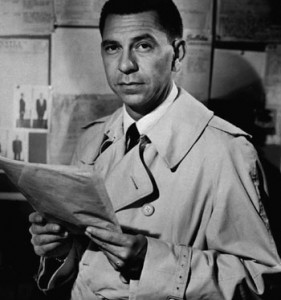John Nesbitt was a mainstay of the Golden Age of Radio as one of radio’s great storytellers. Nesbitt was known for his Passing Parade, which aired for more than a decade, both as a stand-alone program as well as a segment on longer programs, such as Johnson’s Wax Summer Program and The John Charles Thomas Show.
However, Nesbitt’s talents weren’t just enjoyed by radio listeners. He narrated more than fifty short films, which were played in theaters before the feature attraction. Many, but not all, were a film series of Passing Parade. Nesbitt’s voice would be the only speaking role as he told viewers an unusual or remarkable true life story.
Nesbitt’s films were not just filler. Films that Nesbitt narrated and either produced or wrote received a total of five Academy Awards for short films over an eleven-year period from 1938-49.
In this series, we’ll take a look at each one.
That Mothers Might Live (1938)
That Mothers Might Live opens with shots of a 1930s hospital. We’re then told of a man who dreamed of this a century before and are transported to a 19th-century hospital. There, a popular young obstetrician named Doctor Semmelweis (Shepherd Strudwick) becomes obsessed with finding out what has caused the death of more than two thousand women over the course of six years.
Semmelweis’s tireless research leads to a breakthrough discovery that could change medicine and save the lives of numerous patients. In the twentieth and twenty-first centuries, it was considered common sense. But in the nineteenth century, it rubbed against hospital politics and the pride of physicians. The film shows Semmelweis’s fight and the toll it would take on him.
Strudwick’s acting is solid. In what’s a non-speaking role, he manages to bring Semmelweis to life and to go through the whole gamut of emotions in just a few minutes. The film is well-directed and well-edited, taking the audience on this emotional roller coaster ride in ten minutes through the incidental music and cuts. Nesbitt’s narration is flawless and keeps the audience engaged from start to finish.
Semelweis’ story was a footnote in history that the average viewer both then and now had never heard of. For those who saw That Mothers Might Live, Semelweis’ story is one that’s impossible to forget.
The film won the Oscar for Best Short Subject (One-Reel) in 1939.
That Mothers Might Live is currently available on YouTube.

